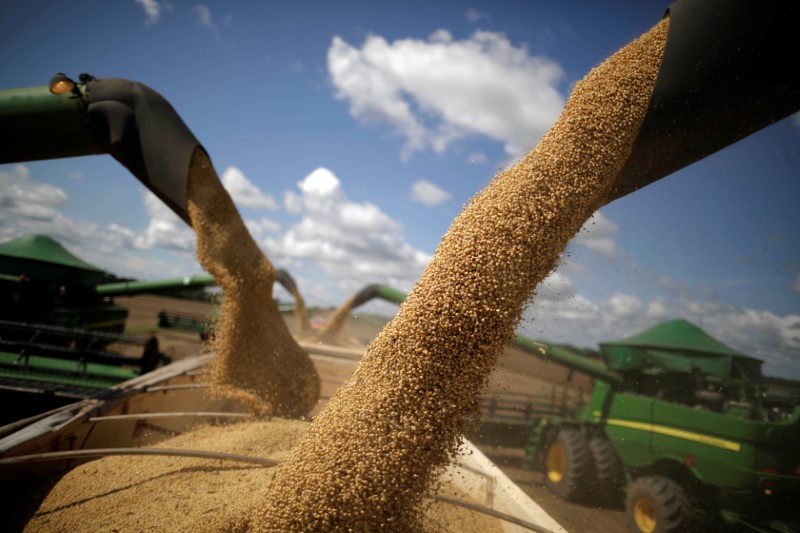(Bloomberg) -- Marubeni Corp. , one of the world’s biggest general trading companies, said its U.S.-based unit Columbia Grain Trading Inc., stopped all new sales of soybeans to Chinese customers, according to a statement.
The decision was due to worsening profitability and uncertainties about trade conditions, the company said by email, without elaborating. Gavilon Group, another U.S. trader owned by the Japanese conglomerate, will continue trading soybeans to China without any changes, it said.
Agricultural commodity firms have struggled to make money after years of bumper harvests and low prices curbed the volatility traders need to thrive. Their plight has worsened as U.S. President Donald Trump and his Chinese counterpart Xi Jinping make slow progress in negotiations to ease their trade war. Marubeni said earlier this year that a decline in trading volumes and prices fueled by the spat had hurt its agricultural business.
Other companies are also under pressure. Cargill Inc. is looking to shake up its business as Trump’s trade war makes it harder to navigate unpredictable crop markets. Earlier this month, Cargill reported its steepest quarterly profit decline in four years as it dealt with tumult ranging from trade disputes to inclement weather in the U.S. Midwest and lower feed demand in China due to the spread of African swine fever.
Marubeni (T:8002) shares in Tokyo declined 1.2% to 714.3 yen at Friday’s close, outpacing a drop in Japan’s benchmark Topix index, which fell 0.4%. The company’s shares have lost over 17% in the past year.
Sales Slump
Archer-Daniels-Midland Co. is also undergoing a transformation to focus more on animal nutrition and to cut costs. Bunge Ltd. is looking to offload some business, recently announcing a joint venture with British oil major BP (LON:BP) Plc.
Marubeni’s Columbia Grain Trading was formerly one of the biggest trading houses in China’s imported soybean market, the company said. The unit is engaged in trading soybeans, corn, sorghum and other grains mainly from the Americas to China, Japan and Southeast Asia, according to a company website.
China, the world’s top soybean buyer, purchased about 14 million tons of American soybeans since December, when Washington and Beijing first reached a truce in the tit-for-tat trade spat. That’s still down from the usual 30 million to 35 million tons of American supplies China usually buys a year.
